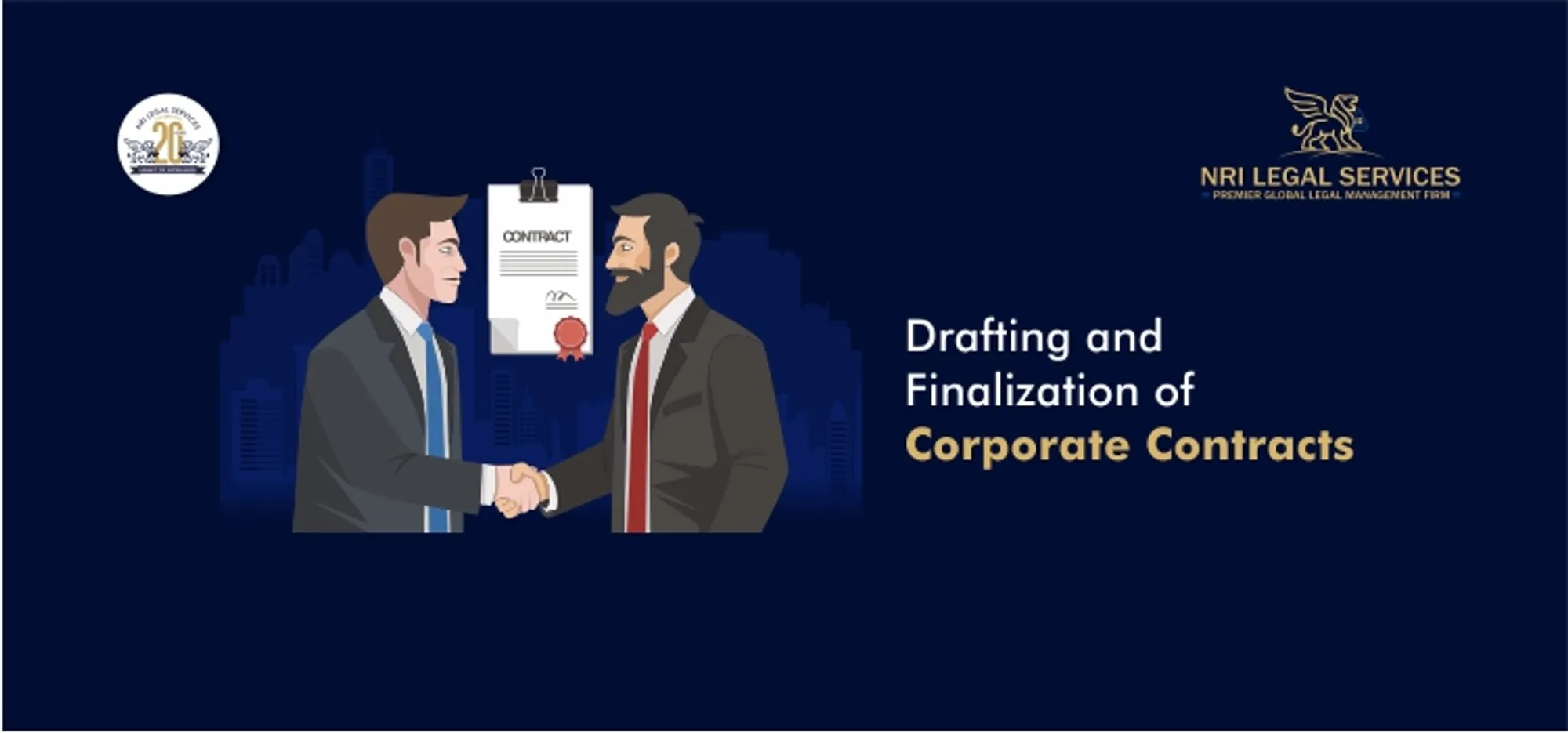When we discuss the corporate sector, we are talking about the companies engaged in private businesses. It does not include Government Departments and NGOs, which are non-profit making organizations.
A Corporate contract is a primary document that any business entity requires for a start-up and run a business.
Companies need to enter into various types of contracts to carry out their business activities. A contract is a legally enforceable agreement. It must conform to all the essentials described in the Law of Contract (Indian Contract Act). A Corporate lawyer or a legal firm assists in the drafting of a contract and ensuring its validity.
There are different types of corporate contracts, and they are categorized depending upon the nature of the business activity and the purpose that the agreement will serve.
Recommended reading: Corporate Services Advisory
Table of Contents
Corporate Contracts have various forms:
- General contracts – Such contracts relate to the structural formation of companies. They define the relationship of the company’s owners among themselves and their relation with the outside world. These contracts include and explain the nature of the liabilities, duties, and responsibilities of the members of a company.
- Contracts of property matters – Such contracts are lease agreements, rental agreements, and assets-purchase agreements.
- Finance-related contracts – These contracts relate to shareholders’ agreements, contracts with Banks and other Financial Institutions, etc.
- Sale-Purchase Contracts – The contracts of sale and purchase of goods and services are sale-purchase contracts.
- Employment Contracts – These contracts relate to the relationship of employer and employees. Non-Disclosure Agreements are a part of it.
- There are also some other agreements, i.e. Joint Venture Agreements, Mergers and Acquisitions Agreements.
Contract – A legal document:
A contract is a vital document that defines the scope and determines the success of the businesses. It is essential to have a valid contract for the companies’ smooth functioning and avoid unnecessary litigation.
It is crucial to draft the corporate contract carefully as the terms of an agreement bind the parties. A contract contains legal obligations, duties, responsibilities, rights and liabilities of the parties towards each other for the particular business activity or transaction.
The terms and conditions mentioned in the contract are a deciding factor to settle the disputes which may arise during business activity.
Recommended reading: Corporate law and NCLT
Drafting and Finalization:
The drafting of a corporate contract is a painstaking exercise. It requires legal expertise and insight to draft and finalize an agreement or a contract for the companies.
- The first step is to collect the documents relevant to the nature and scope of business activity. For a lawyer, it is crucial to acquaint oneself with all the essential documents related to the required content of the contract.
- One must look into the documents defining the permissible activities. The awareness of the approved transactions within the sphere of business activity is a must. The authorized signatory should have been empowered to sign the requisite agreements on behalf of the company and make legally binding commitments.
- Secondly, it is all the more important to understand the expectations of the clients.
- Thirdly, negotiating the terms and conditions of the contract. The details of the business activity as per the clients’ requirements are incorporated in the contract. A lawyer assists in discussing the same and reaches a consensus within permissible legal parameters.
- Last but not least, the company’s representative dealing with the legal firm/drafting lawyer should be sensitized to provide vital information accurately and timely to avoid misunderstandings and ambiguity in finalizing the contract. It will also help to review the contracts with changes in circumstances well in time.
Recommended reading: Corporate Litigation defined
Legal firms collect and compile the relevant information. The task demands the active involvement and participation of a lawyer in the decision-making process of the business entities while drafting and finalizing different types of corporate contracts.

